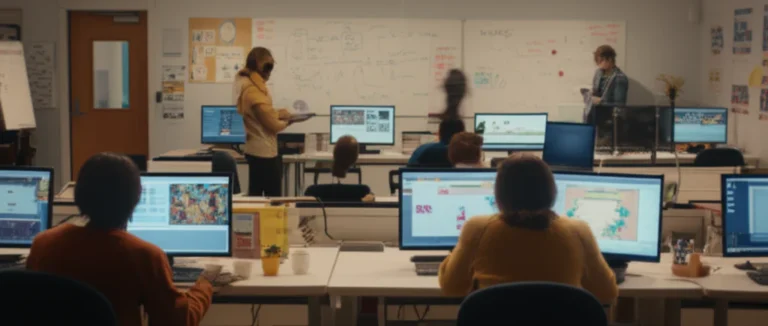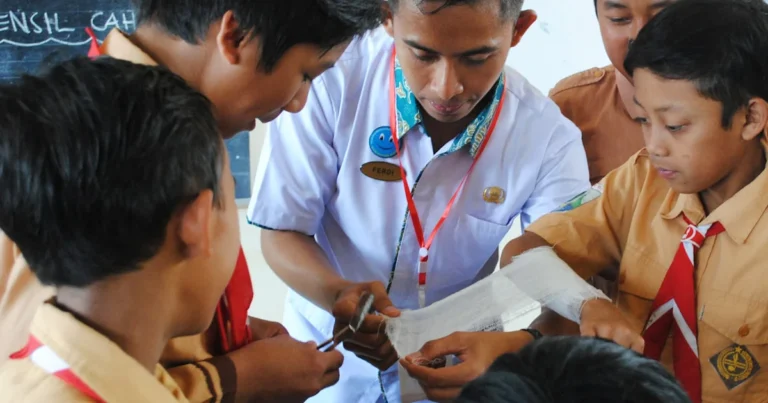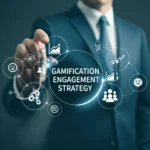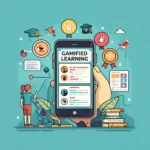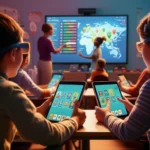Support our educational content for free when you purchase through links on our site. Learn more
12 Games for Personal Growth That Actually Work in 2025 🎯
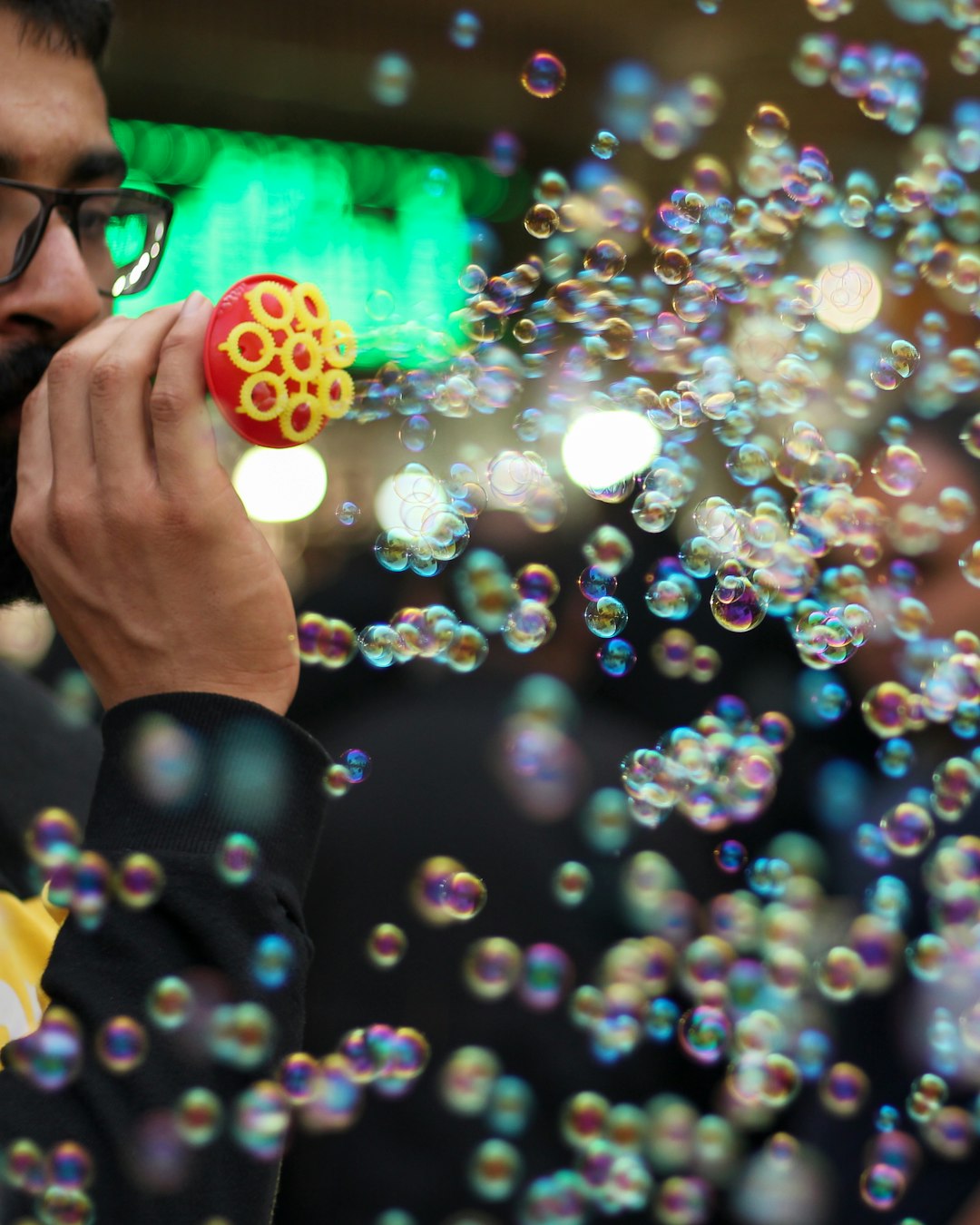
Have you ever wished personal growth felt less like a chore and more like an adventure? Imagine turning your self-improvement journey into a game where every challenge conquered, every habit formed, and every emotional skill mastered earns you real progress—and maybe even a little fun along the way. At Gamification Hub™, we’ve explored dozens of games designed to boost resilience, sharpen your mind, and deepen your emotional intelligence. From digital apps like SuperBetter to engaging tabletop games and immersive role-playing experiences, this guide uncovers 12 powerful games for personal growth that go beyond the usual self-help fluff.
Here’s a little teaser: did you know the global gamification market is set to soar past $30 billion by 2025, largely fueled by health and wellness apps? That’s no coincidence. Games tap into our brain’s reward system, making growth addictive and enjoyable. But with so many options, how do you pick the right one? Stick around as we break down the best games by type, goals, and style—plus insider tips on integrating play into your daily routine for lasting change. Ready to level up your life? Let’s dive in! 🚀
Key Takeaways
- Games transform personal growth into an engaging, motivating experience by leveraging psychology like dopamine release and flow states.
- There are diverse game types for every growth goal: habit-building apps, social board games, role-playing adventures, mindfulness tools, and more.
- Choosing the right game depends on your unique goals, preferences, and lifestyle—from solo reflection to group collaboration.
- Consistency and reflection are essential: integrating short, regular play sessions maximizes real-world impact.
- Popular and effective titles include SuperBetter, Habitica, The Ungame, and Junior Learning’s 6 Personal Growth Games for kids.
- Personal growth games can reshape personality traits, boost emotional intelligence, and enhance professional skills.
👉 Shop Personal Growth Games & Apps:
- SuperBetter: Amazon | Official Site
- Habitica: Official Site
- 6 Personal Growth Games (Junior Learning): Junior Learning Official
Table of Contents
- ⚡️ Quick Tips and Facts
- 🎮 The Playful Path: A Brief History of Gamification in Self-Improvement
- 🧠 Why Play? The Psychology Behind Games for Personal Growth
- 🚀 Beyond the Board: Understanding Different Types of Personal Growth Games
- 📱 Digital Delights: Apps and Software for Self-Mastery
- 🎲 Tabletop Titans: Board and Card Games for Social & Strategic Growth
- 🎭 Role-Playing Realms: Stepping into New Selves for Deeper Understanding
- 🧩 Mind-Bending Puzzles: Video Games That Sharpen Your Cognitive Edge
- 🎨 Creative Quests: Games for Unleashing Your Inner Artist and Innovator
- 🧘♀️ Mindfulness & Emotional Intelligence Games: Cultivating Inner Peace
- ✅ Habit-Building Heroes: Gamified Systems for Lasting Change
- 🗺️ Experiential Adventures: Real-World Games for Real-World Skills
- 🎯 Choosing Your Adventure: How to Pick the Perfect Game for Your Growth Journey
- 🗓️ Integrating Play: Making Games a Part of Your Daily Growth Routine
- 🌟 Growth Beyond the Game: Connecting Play to Real-World Impact
- 🌱 Personal Growth vs. Personality Development: Untangling the Terms
- ⬆️ Ready to Level Up? Your Next Steps on the Growth Journey
- 🏆 Conclusion: Game On for a Better You!
- 🔗 Recommended Links
- ❓ FAQ: Your Burning Questions Answered
- 📚 Reference Links
⚡️ Quick Tips and Facts
Welcome to the exciting world of games for personal growth! 🎉 At Gamification Hub™, we’ve seen firsthand how turning self-improvement into a game can transform motivation, learning, and real-life change. Here are some quick nuggets to get you started:
- Games boost engagement by tapping into intrinsic motivation — that irresistible urge to play and win. (Source: Psychology Today)
- Flow state is often achieved during gameplay, enhancing focus and learning retention. (Source: Mihaly Csikszentmihalyi’s research)
- Gamified personal growth tools like SuperBetter (check our SuperBetter review) have helped millions build resilience and mental wellness.
- Not all games are created equal: some focus on emotional intelligence, others on habit formation, and some on cognitive skills.
- Social games can improve communication and teamwork skills, while solo games often boost self-reflection and mindfulness.
- Consistency is key: integrating short, daily gameplay sessions into your routine beats sporadic marathon sessions.
- Beware of over-gamification — too many points or badges without meaningful feedback can feel hollow and demotivating.
Keep these in mind as we dive deeper into the playful, powerful world of personal growth games. Ready to level up? Let’s go! 🚀
🎮 The Playful Path: A Brief History of Gamification in Self-Improvement
Before we strap on our game controllers, let’s rewind and see how games became a tool for personal growth.
The Origins of Play as Learning
Humans have used play as a learning tool since prehistoric times — from children mimicking adults to tribal storytelling games. Fast forward to the 20th century, psychologists like Jean Piaget and Lev Vygotsky emphasized play’s role in cognitive and social development.
The Rise of Gamification
The term “gamification” exploded in the 2010s, describing the use of game elements in non-game contexts. Early pioneers like Jane McGonigal, author of Reality Is Broken, showed how games could build resilience and social connection.
Personal Growth Games Take Center Stage
Apps like SuperBetter (developed by McGonigal) and platforms such as Lumosity and Happify brought gamified self-improvement to the masses. Today, the market includes everything from board games designed to boost emotional intelligence to VR experiences that foster mindfulness.
Fun fact: The global gamification market is projected to reach over $30 billion by 2025, driven largely by health and wellness applications. (Source: MarketsandMarkets)
🧠 Why Play? The Psychology Behind Games for Personal Growth
The Science of Fun: Dopamine, Flow, and Learning
Games trigger the release of dopamine, the brain’s “feel-good” neurotransmitter, which reinforces motivation and learning. When you’re immersed in a game, you often enter a flow state — a sweet spot of focused engagement where time flies and skills improve.
This is why gamified learning can be more effective than traditional methods. It’s not just fun; it’s neuroscience in action.
Unlocking Potential: How Games Foster Key Skills
Personal growth games can enhance:
- Emotional intelligence: Recognizing and managing emotions through role-play and feedback.
- Problem-solving: Strategic thinking in puzzles and challenges.
- Social skills: Communication and collaboration in multiplayer games.
- Mindfulness: Games that encourage reflection and stress reduction.
- Habit formation: Reward systems that reinforce positive behaviors.
At Gamification Hub™, we’ve seen clients break through plateaus by simply reframing growth as a game — suddenly, setbacks become “leveling up” opportunities instead of failures.
🚀 Beyond the Board: Understanding Different Types of Personal Growth Games
Personal growth games come in many flavors. Let’s explore the main categories and what makes each unique.
1. 📱 Digital Delights: Apps and Software for Self-Mastery
Apps like SuperBetter, Fabulous, and Habitica gamify habit-building and resilience. They use points, quests, and social accountability to keep you on track.
| App Name | Focus Area | Key Features | Best For |
|---|---|---|---|
| SuperBetter | Resilience & Mental Health | Quests, power-ups, social support | Stress management, depression |
| Fabulous | Habit Formation | Daily coaching, reminders, science-based | Building routines |
| Habitica | Productivity & Habits | RPG-style leveling, guilds, rewards | Gamers who want productivity |
Pro tip: Habitica’s RPG style made me personally stick to my morning routine for over 6 months — turning chores into quests was a game-changer! 🎯
👉 CHECK PRICE on:
- SuperBetter: Amazon | SuperBetter Official Website
- Fabulous: Google Play | Apple App Store
- Habitica: Official Website
2. 🎲 Tabletop Titans: Board and Card Games for Social & Strategic Growth
Board games like The Mind, Dixit, and The Ungame foster communication, empathy, and strategic thinking. Junior Learning’s 6 Personal Growth Games set is a great example designed for kids to explore self-esteem and emotions.
| Game Name | Growth Focus | Gameplay Style | Age Group |
|---|---|---|---|
| The Mind | Teamwork & Intuition | Cooperative card game | Teens & Adults |
| Dixit | Creativity & Empathy | Storytelling with illustrated cards | All ages |
| The Ungame | Communication & Self-Reflection | Conversation starter game | Teens & Adults |
| 6 Personal Growth Games (Junior Learning) | Self-esteem, emotions | Board, matching, ordering games | Children 8-12 |
Why we love it: Tabletop games create face-to-face connection — a rare gem in today’s digital world. Plus, the tactile experience helps anchor learning.
3. 🎭 Role-Playing Realms: Stepping into New Selves for Deeper Understanding
Role-playing games (RPGs) like Dungeons & Dragons or therapeutic role-play exercises help players explore identity, empathy, and decision-making. They’re powerful for developing social skills and emotional resilience.
4. 🧩 Mind-Bending Puzzles: Video Games That Sharpen Your Cognitive Edge
Games like Portal 2, The Witness, and Lumosity challenge your brain with puzzles that improve memory, attention, and problem-solving.
5. 🎨 Creative Quests: Games for Unleashing Your Inner Artist and Innovator
Creative games such as Minecraft, LittleBigPlanet, and Dreams encourage innovation, planning, and artistic expression.
6. 🧘♀️ Mindfulness & Emotional Intelligence Games: Cultivating Inner Peace
Apps like Calm, Headspace, and Muse combine gamification with meditation and emotional regulation techniques.
7. ✅ Habit-Building Heroes: Gamified Systems for Lasting Change
Systems like Beeminder and Streaks use accountability and visual progress to cement habits.
8. 🗺️ Experiential Adventures: Real-World Games for Real-World Skills
Outdoor and social games like geocaching, escape rooms, and team-building exercises develop problem-solving, leadership, and collaboration.
🎯 Choosing Your Adventure: How to Pick the Perfect Game for Your Growth Journey
Identifying Your Growth Goals: What Do You Want to Achieve?
Before jumping in, ask yourself:
- Are you aiming to build emotional resilience, social skills, or habit formation?
- Do you prefer solo reflection or group interaction?
- What’s your time availability and budget?
Matching Game Mechanics to Personal Needs
- Quests and challenges work well for goal-oriented people.
- Storytelling and role-play suit those who learn through empathy.
- Puzzle-solving appeals to analytical minds.
- Social games help extroverts or those wanting to improve communication.
Budget, Time, and Accessibility: Practical Considerations
- Apps often offer free tiers or trials.
- Board games require physical space and players.
- VR and advanced tech may need investment.
- Consider accessibility for disabilities or language barriers.
🗓️ Integrating Play: Making Games a Part of Your Daily Growth Routine
Setting Intentions and Tracking Progress
- Start with small daily or weekly goals.
- Use journals or app dashboards to monitor growth.
- Celebrate milestones with rewards (real or virtual).
Solo Play vs. Group Dynamics: When to Play Alone or with Others
- Solo games foster introspection and self-discipline.
- Group games build communication and teamwork.
- Mix both for balanced growth.
Overcoming “Game Over” Moments: Staying Motivated
- Expect setbacks — they’re part of the journey.
- Use social support or coaching for accountability.
- Reframe failures as learning experiences.
🌟 Growth Beyond the Game: Connecting Play to Real-World Impact
From Virtual Wins to Real-Life Victories
The magic of personal growth games is how skills transfer beyond the screen or table. Improved communication in a game can lead to better workplace relationships. Mindfulness games can reduce daily stress.
The Ripple Effect: How Personal Growth Benefits Others
When you grow, your family, friends, and colleagues often benefit too. Empathy games can improve social harmony; habit-building games can inspire healthier communities.
🌱 Personal Growth vs. Personality Development: Untangling the Terms
Can You Really Change Your Personality? Yes, Through Growth!
Personality is partly genetic but also shaped by experiences. Through intentional activities — including games — you can reshape behaviors, emotional responses, and thinking patterns. This aligns with insights from BetterUp.
The Synergy: Personal, Professional, and Personality Development
- Personal growth focuses on holistic self-improvement.
- Personality development hones traits like communication and assertiveness.
- Professional development targets career skills.
Games can bridge all three by creating engaging, measurable experiences.
⬆️ Ready to Level Up? Your Next Steps on the Growth Journey
Feeling inspired? Here’s how to kickstart your journey:
- Pick a game or app that aligns with your goals.
- Set realistic, measurable objectives.
- Schedule regular play sessions.
- Join communities or find a mentor/coach for support.
- Reflect on progress and adjust as needed.
Remember, personal growth is a marathon, not a sprint — but with games, it’s a marathon that’s way more fun! 🎉
If you want to dive deeper into gamified self-improvement, check out our Educational Gamification and Game-Based Learning categories for more insights and case studies.
Up next: the grand finale — our conclusion and curated resources to keep your growth game strong!
🏆 Conclusion: Game On for a Better You!

Wow, what a journey! From the roots of play in human development to the cutting-edge apps and tabletop games transforming lives today, games for personal growth are a powerful, versatile tool. They engage our brains, hearts, and social selves in ways traditional self-help often can’t.
At Gamification Hub™, we’ve seen how gamifying growth helps people stay motivated, build resilience, and translate virtual wins into real-world success. Whether you’re tackling stress with SuperBetter, sharpening your social skills with The Ungame, or building habits with Habitica, there’s a game out there tailored for your unique journey.
Quick Recap
- Games leverage psychology — dopamine, flow, and reward systems — to make growth addictive and fun.
- There’s a rich variety: digital apps, board games, role-playing, puzzles, and real-world adventures.
- Choosing the right game depends on your goals, preferences, and lifestyle.
- Integrating play regularly and reflecting on progress maximizes impact.
- Personal growth games can reshape personality traits, boost emotional intelligence, and enhance professional skills.
Final Thoughts on Junior Learning’s 6 Personal Growth Games
This set is a fantastic resource for children to explore self-esteem, emotions, and social changes in a gentle, engaging way. Its mix of board, matching, and ordering games offers variety and accessibility. However, it’s designed specifically for younger audiences and may not suit adult learners.
Positives:
- Inclusive and sensitive content
- Variety of game types to maintain interest
- Encourages positive social and emotional development
Negatives:
- Limited to children ages 8-12
- Physical components require supervision (small parts warning)
Our recommendation: If you’re a parent, educator, or counselor working with kids, this is a solid addition to your toolkit. For adults, explore apps like SuperBetter or Habitica for a more tailored experience.
So, are you ready to level up your personal growth with games? Remember, the best game is the one you enjoy playing consistently. Start small, stay curious, and watch your life transform — one quest at a time. 🎮✨
🔗 Recommended Links
👉 Shop Personal Growth Games and Apps:
- SuperBetter: Amazon | SuperBetter Official Website
- Fabulous: Google Play | Apple App Store
- Habitica: Official Website
- 6 Personal Growth Games (Junior Learning): Junior Learning Official Site
Recommended Books for Personal Growth & Gamification:
- Reality Is Broken by Jane McGonigal — Amazon Link
- 59 Seconds by Richard Wiseman — Amazon Link
- Happiness Beyond Thought by Gary Weber — Amazon Link
- The Victorious Mind by Anthony Metivier — Amazon Link
❓ FAQ: Your Burning Questions Answered
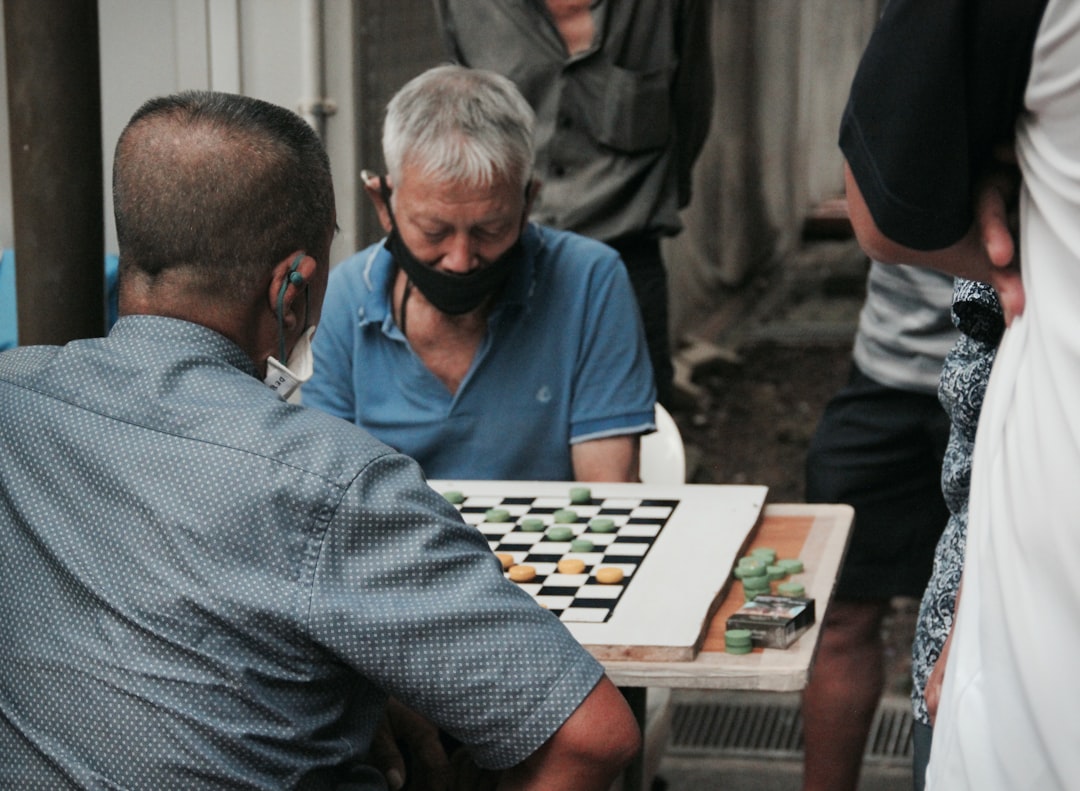
What are the most effective games for improving mental health and wellness?
Games like SuperBetter and Happify are designed specifically to build resilience, reduce anxiety, and improve mood through scientifically backed challenges and social support. They use positive psychology principles and encourage small, manageable actions that build over time. These games often incorporate cognitive behavioral therapy (CBT) techniques and mindfulness exercises, making them effective tools for mental wellness. (SuperBetter Official)
How can games be used to develop emotional intelligence and self-awareness?
Role-playing games (RPGs) and social board games like The Ungame or Dixit encourage players to express feelings, interpret others’ emotions, and practice empathy in a safe environment. Through storytelling and feedback, players become more attuned to their own emotional states and those of others, enhancing self-awareness and emotional regulation. Gamified journaling apps also prompt reflection, deepening insight.
What role do games play in promoting positive habits and behavioral change?
Habit-building apps such as Habitica and Fabulous turn daily routines into quests and challenges, rewarding consistency with points, badges, and social recognition. This taps into the brain’s reward system, making habit formation more engaging and less of a chore. The visual progress tracking and accountability features help maintain motivation over the long term.
Can games be used as a tool for overcoming anxiety and stress?
Absolutely! Mindfulness and meditation games/apps like Calm, Headspace, and Muse use gamified elements to encourage regular practice of relaxation techniques. Additionally, resilience-building games like SuperBetter help reframe challenges and setbacks as opportunities for growth, reducing anxiety by fostering a sense of control and optimism.
Read more about “Can SuperBetter Help Overcome Anxiety & Depression? 7 Key Insights 🎮 (2025)”
How do games that focus on personal growth impact our relationships and social skills?
Social games foster communication, teamwork, and conflict resolution skills. Multiplayer cooperative games require players to negotiate, strategize, and support each other, which translates into improved real-life social interactions. For example, The Mind enhances non-verbal communication and trust, while role-playing games build empathy and perspective-taking.
What are some examples of games that incorporate mindfulness and meditation techniques?
Apps like Calm and Headspace gamify meditation by offering streaks, levels, and rewards for consistent practice. Muse, a brain-sensing headband paired with an app, provides real-time feedback on meditation quality, turning mindfulness into an interactive game. These tools make mindfulness accessible and engaging for beginners and veterans alike.
Read more about “15 Best Gamification Examples That Will Blow Your Mind …”
Are there any games that can help individuals set and achieve personal goals, such as career development or financial literacy?
Yes! Games like Goalmap and Money Metropolis use gamification to help users set, track, and achieve goals in various domains, including career and finances. These games break down big goals into smaller, manageable tasks and reward progress, increasing motivation and accountability. Additionally, platforms like LinkedIn Learning incorporate gamified elements to encourage professional skill development.
📚 Reference Links
- Psychology Today: Why We Love Playing Games
- Positive Psychology: Flow State
- MarketsandMarkets: Gamification Market Report
- SuperBetter Official Website
- Habitica Official Website
- Junior Learning: 6 Personal Growth Games
- BetterUp Blog: Activities for Personality Development
- Self Improvement Supercharger: Personal Development Activities
Ready to make personal growth your next great adventure? Grab your controller, pick your game, and let the transformation begin! 🎲✨


